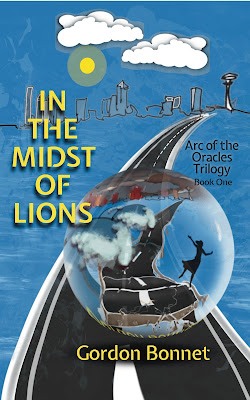When I was a kid, the high point of school was when we got the monthly Scholastic Book Club listings.
The opportunity to pick out a handful of books to buy -- at that point, back in the early 1970s, they cost an astonishing one or two dollars each -- turned me into the proverbial kid in the candy store. I dutifully filled out my order form, submitted it and my money to the teacher -- and a few weeks later, there'd be a delivery of a box full of books to dole out to the students.
Pure magic.
It was in a SBC sale, when I was maybe twelve, that I got a copy of Madeleine L'Engle's A Wrinkle in Time.
I completely lost myself in the adventures of Meg, Calvin, and Charles Wallace, along with their guides, the cheerful, shapeshifting Mrs. Whatsit, the classics-quoting Mrs. Who, and the mysterious and slightly intimidating Mrs. Which. It was a glimpse into a universe the likes of which I'd never experienced before.
I was launched into a love of magical realism that is still with me today, fifty years later. Along the way I discovered such masters as Edgar Allen Poe, H. P. Lovecraft, Guy de Maupassant, George MacDonald, and C. S. Lewis -- and later, Neil Gaiman, Terry Pratchett, Christopher Moore, and Haruki Murakami. What I learned from them informed my imagination and writing style, inspiring my own career as an author.
Research out of the University of Cambridge, published this week in the journal Psychological Medicine, has found that young people who are encouraged to read for pleasure score better on cognitive tests and have overall better mental health during their teenage years than children who don't. The study looked at over ten thousand children, and the results were unequivocal.
"Reading isn’t just a pleasurable experience," said study co-author Barbara Sahakian. "It’s widely accepted that it inspires thinking and creativity, increases empathy and reduces stress. But on top of this, we found significant evidence that it’s linked to important developmental factors in children, improving their cognition, mental health, and brain structure, which are cornerstones for future learning and well-being."****************************************



No comments:
Post a Comment